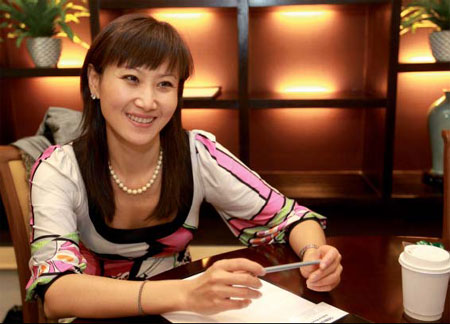Money power
Updated: 2013-04-12 08:24
By Andrew Moody and Hu Haiyan (China Daily)
|
|||||||||||
|
Junheng Li, founder of J.L. Warren Capital, believes there are concerns about corporate governance with Chinese banks. Cui Meng / China Daily |
He says the Bank of England is even considering changing the rules to allow Chinese banks to operate as branches and not subsidiaries, the only status currently allowed for foreign banks in the UK. Operating as a branch, with the full security of the Beijing legal identity behind it, would enable banks to expand without deploying as much direct capital.
"The Bank of England understands the importance of having the Chinese banks and they are looking at ways of accommodating their method of operation," Boleat adds.
Whatever the international strategies of the banks, China is already a dominant financial player in the world.
By virtue of being the world's manufacturing workshop for a generation, it has accumulated $3.2 trillion in foreign currency reserves.
Around $1.16 trillion of this is held in US Treasury bonds and therefore China is a major underwriter of the world's biggest economy's gigantic national debt.
If anyone were to underestimate the potential scale of China's financial firepower, they might better first consider that the sovereign wealth fund CIC has already had a major presence globally by deploying just 1.6 percent of available foreign currency reserves.
Gary Rieschel, founder and managing partner of Qiming Venture Partners, a leading venture capital company, based in Shanghai, says it is not a question of when China becomes a financial superpower because it already is.
|
||||
But he argues that if China is going to be as dominant in the world as it has been in manufacturing, it will have to overcome major hurdles.
"In the manufactured product world, the trust is in the product. Thirty years ago China did not target being a world class manufacturer and competing with Germany but at just being good enough for the lower cost markets..
"The problem with financial services is that just good enough doesn't work. The trust is in the people and the institutions and not in the product. That is the part that China is going to struggle with."
One of the major questions is whether China can achieve true dominance abroad without banking reform at home.
One key reform would be interest rate liberalization. Interest rates are set centrally by the People's Bank of China and so domestic banks cannot set their own interest rate spreads and compete for funds or even price risk. This has resulted in a lack of effective competition in the domestic banking sector.
Mike Werner, senior equity analyst at research group Sanford C. Bernstein in Hong Kong, says that without this experience it is often difficult for Chinese banks to compete abroad.
"In China as a private individual, if you think where you are going to put your money, it is either property, equities or deposits. Equities haven't done so well, property has been clamped down on so the banks have this captive audience for deposits.
"If you are in the US or Europe you don't have this captive audience because you are competing against all the other investment alternatives."
Despite this headwind, the Chinese banks have been stepping up their overseas operations.
The overseas assets of ICBC, which acquired 80 percent of Standard Bank's Argentinian assets over the last year, grew by 30.5 percent to $162.7 billion, some 5.8 percent of the group's total assets.
Bank of China's overseas assets (when Hong Kong, Macao and Taiwan operations are added) stood at $483.6 billion last year, an increase of 13 percent on the previous year and some 24.7 percent of its total assets.
The merger-hungry China Construction Bank's $83.6 billion represented a 17 percent increase. Agricultural Bank of China saw the biggest rise in its overseas assets. They soared 92.9 percent to $38.78 billion, 1.8 percent of the group's total.
Ba Shusong, deputy director general at the Development Research Center of the State Council, says Chinese banks began to develop their international operations after China joined the World Trade Organization in 2001 but that this has developed momentum with the government's tight control of credit in the domestic market.
Related Stories
Renminbi's role set to grow 2013-04-12 08:24
Advent of a banking superpower 2013-04-12 08:24
Making the right transition 2013-04-12 08:24
Center focus on economic reform 2013-04-12 08:24
Today's Top News
List of approved GM food clarified
ID checks for express deliveries in Guangdong
Govt to expand elderly care
University asks freshmen to sign suicide disclaimer
Tibet gears up for new climbing season
Media asked to promote Sino-Indian ties
Shots fired at Washington Navy Yard
Minimum growth rate set at 7%
Hot Topics
Lunar probe , China growth forecasts, Emission rules get tougher, China seen through 'colored lens', International board,
Editor's Picks

|

|

|

|

|

|










